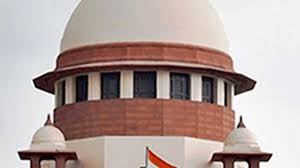We have perused the impugned order of the NGT and particularly paragraph ‘16’ which has been extracted above. It is apparent that the appellant(s) herein who were respondents before the NGT were not given an opportunity to file their objections to the recommendations made by the Committee constituted by the NGT which is apparent by the fact that the recommendations were uploaded on 15.01.2022 and the final order of the NGT was passed three days later on, i.e. 18.01.2022. Thus, this is a clear case of there being non compliance with the principles of natural justice. On the said ground alone the impugned order is set aside, the matter is remanded to the NGT for re-consideration from the stage of the recommendations filed by the expert Committee constituted by the NGT. The appellant(s) herein are permitted to file their objections, if they are so advised. The NGT shall consider the objections, if any, filed to the recommendations and thereafter dispose of the applications in accordance with law and after giving a reasonable opportunity to all parties. (Para 18)
SUPREME COURT JUDGMENT
Citation: 2023 STPL(WEB) 62 SC
SINGRAULI SUPER THERMAL POWER STATION Vs. ASHWANI KUMAR DUBEY & ORS.
Civil appeal no. 3856 of 2022 With Civil Appeal No. 4529 of 2022 Civil Appeal No. 4525 of 2022 Civil Appeal No. 4581 of 2022-Decided on 5-7-2023
Click to See Full Text of Judgment: 2023 STPL(WEB) 62 SC







